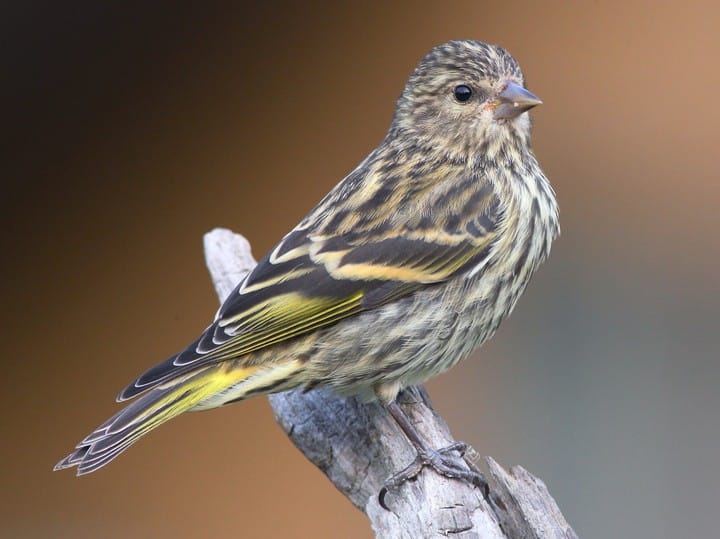The Panhandle Region has received reports of sick or dead wild birds over the last several weeks. The current die-offs are thought to be from Salmonellosis. Salmonellosis is caused by the salmonella bacteria and is a common and generally fatal bird disease. Biologists recommend the public temporarily discontinue feeding wild birds for a few weeks, thoroughly clean bird feeders and rake up spilled or soiled seed on the ground.
Bird feeders should be cleaned regularly with warm soapy water, however more rigorous cleaning is needed during die-off events from salmonellosis. Feeders should be cleaned with a 1:10 ratio of household bleach and water. After soaking in the bleach solution, feeders should be rinsed and dried before filling with seed. If folks continue to feed wild birds, bird feeders and baths should be cleaned daily.

All birds can be impacted by salmonellosis, but pine siskins appear to be more vulnerable due to their social nature of congregating around feeders. Salmonellosis is transmitted through the droppings and saliva of sick birds. Birds infected with Salmonellosis can exhibit symptoms such as ruffled feathers, lethargy, diarrhea and appear very emaciated.
The public can stop the spread of Salmonellosis by temporarily halting the feeding of wild birds, which will encourage birds to disperse and forage naturally.
Although uncommon, salmonella bacteria can be transmitted to humans through direct contact of sick birds or droppings. The public should take precautions when handling birds, bird feeders or bird baths by wearing gloves and thoroughly washing hands. Additionally, pet owners are recommended to keep cats inside to ensure they do not catch or consume sick birds.
For more information contact the Panhandle Regional office at (208)-769-1414.

